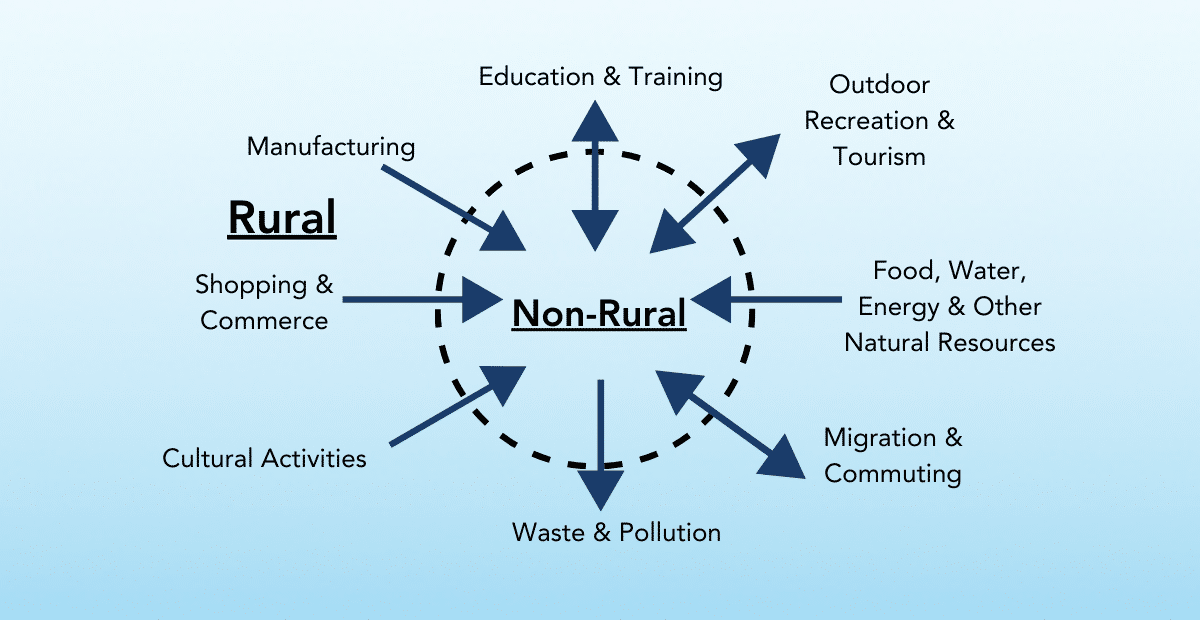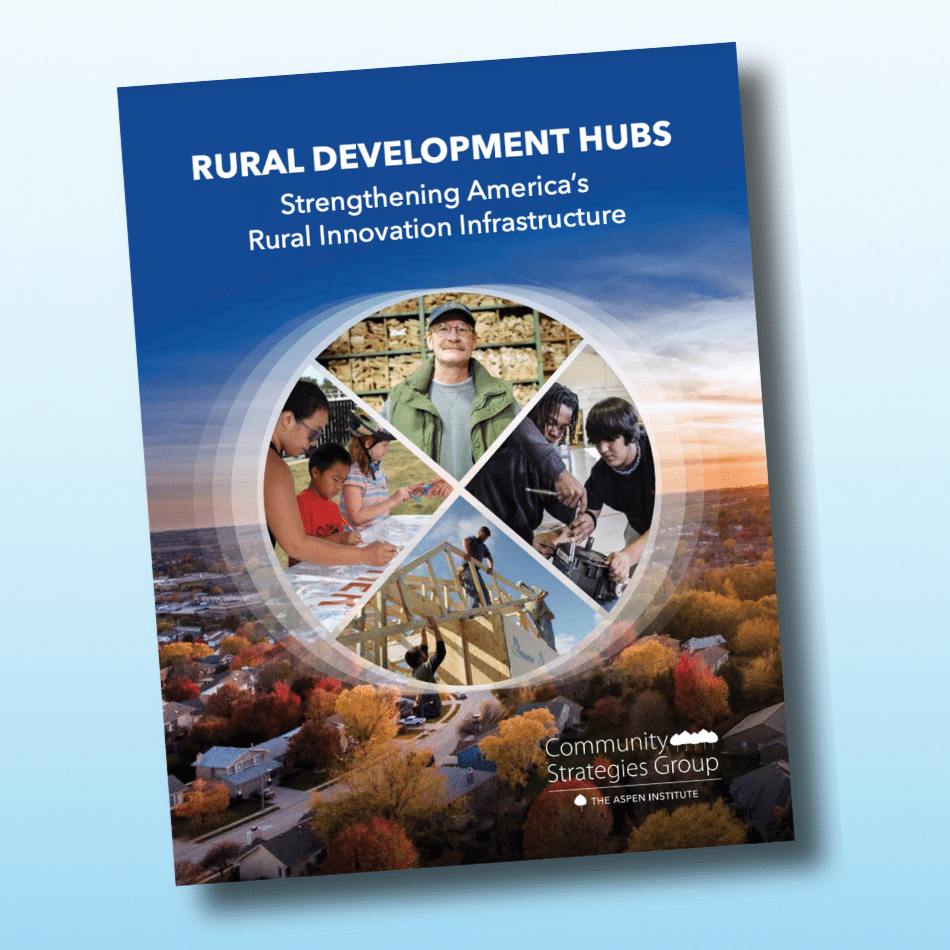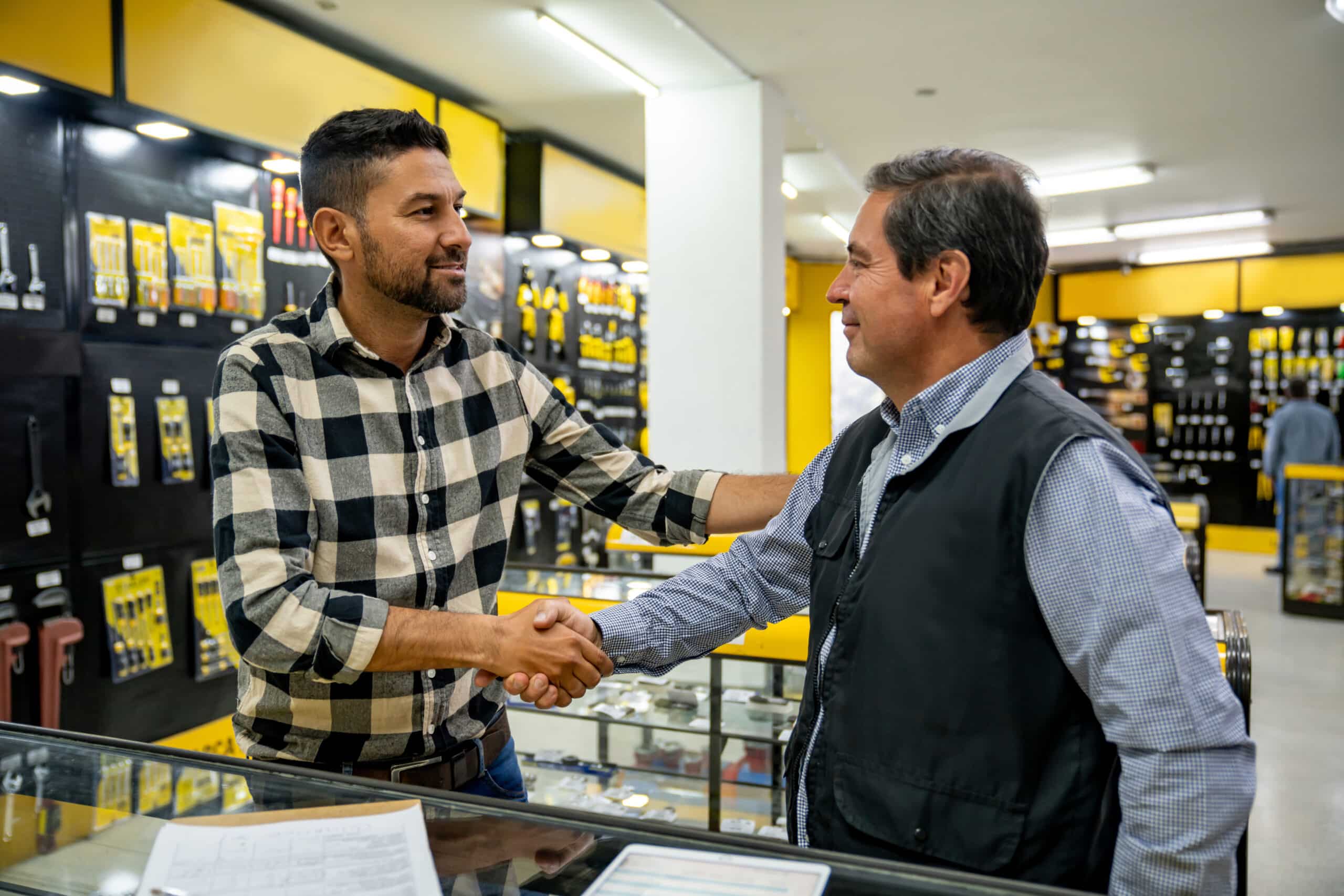What is ROADs?
Multiple partners across the rural space have collaborated over the past few years to curate the Rural Opportunity and Development series (ROADs). The culminating event of the ROADs partnership took place on June 17, 2024, where Aspen CSG, the Housing Assistance Council, the International Economic Development Council, the Rural Community Assistance Partnership (RCAP), and Rural LISC recapped previous ROADs events and shared insights and future plans from this multi-year rural-focused initiative. The event, entitled “The Power of Rural Collaboration and Coalition Building: Lessons Learned and Paths Forward,” was moderated by RCAP and featured each of the ROADs partners.
What have we learned about rural collaboration?
The event followed a flexible agenda, beginning with a brief history of the partnership and an introduction to the topic. It delved into capacity-building needs and successes in rural areas, the concept of non-traditional collaboration at local, regional, and national levels, and how these efforts can manifest through coalition building, which empowers rural advocacy on issues like the Farm Bill. The session concluded with a discussion on the future of rural partnerships and a Q&A session with the audience.
What continues to be a challenge in rural Development?
The session reminded us that no matter the industry, rural communities often lack one major thing across the board: capacity. This challenge underscores the necessity of rural collaboration at various levels—within communities, between communities, and among organizations that serve rural areas, like the ROADs partners. Building coalitions to unite disparate organizations with different roles is crucial for breaking down silos and advocating for rural needs. While some federal programs effectively support rural community and economic development, others do not function as intended, and many are siloed. There is a pressing need for new, flexible, and adaptive programs that can address current needs and shift to support the comprehensive challenges in rural America’s near and long-term future. Some of these changes might be addressed in the next Farm Bill— which has been a long journey for all involved but is nearing fruition.
What’s a key takeaway?
The discussion focused on capacity development, collaboration, and coalition building, providing an overview of best practices and lessons learned to date. It also explored how partners, other rural-based organizations, and rural communities can join forces to drive progress and achieve systemic change so that rural communities can thrive. The biggest takeaway was that no one needs to go it alone, and if we come together, we can go far.
Related Resources
We encourage you to review these related rural development resources:
- Learning Through Collaboration: Field Leaders Drive Critical Conversations: This action-learning blog from Aspen CSG shares how the ROADs collaboration formed and insights from early sessions.
- In It For Rural Resources: Included in this ROADS event recap blog are takeaways from Tony Pipa, a senior fellow at the Brookings Institution, on his co-authored report, What’s in it for rural: Analyzing the opportunities for rural America in IIJA, CHIPS, and IRA?. There are also insights from moderator Nathan Ohle, CEO of IEDC, and four rural economic development specialists: Brett Doney of the Great Falls Development Authority, Ann Lichter of the Rural Innovation Initiative, Josh Mejia, the founder of Mejia & Company, and Bill Brown of the Indiana University Environmental Resilience Institute.
- Designing Scalable Co-Funding Solutions For Broadband And Digital Equity: This ROADS event recap blog from Rural LISC highlights how rural communities can better understand and participate in the new federal funding for high-speed broadband internet. Read event highlights or watch the recording on why broadband presents unique capacity challenges compared to other rural investments. The event panel – Benya Kraus Beacom, co-founder of Lead for America, broadband planning consultant Brian Rathbone, principal of Broadband Catalysts, Jerry Kenney, program officer for the T.L.L. Temple Foundation, Zaki Barzinjii, senior director for Aspen Digital, and Christa Vinson, moderator, and Rural LISC’s broadband lead – emphasize the deep need for fresh thinking and strategies from ecosystem players to better marshal local capacity to maximize capital absorption for broadband.
- Field Based Rural Placemaking: Rural placemaking, arts, and local design can catalyze renewed community and economic development in small towns and rural places. Placemaking celebrates and invests in the uniqueness of each community. This ROADS webinar recording and event notes provide concrete placemaking strategies and takeaways relevant to rural communities of every size—even the most isolated and least resourced.
- Learning To Seize The Moment With Regional Collaboration: This ROADS webinar recap from Aspen CSG showcases speakers from two collaborations that are working regionally to grow opportunities and that have recently drawn down millions of dollars in federal grants: Eric Swack from the Mountain | Plains Community Development Corporation and Jael Kampfe from Indigenous Impact Co are members of the Mountain | Plains Native Community Development Financial Institution (CDFI) Coalition. Brandon Dennison and Marilyn Wrenn from Coalfield Development are members of the Appalachian Climate Technology (ACT) Now Coalition. This blog gathers resources and big-picture insights shared during the event.
- Rural Disaster Preparedness: Partnering For Resilience & Resources: This ROADS event recap blog from RCAP features insights from panelists on the key issues facing rural communities related to disaster preparedness and unique strategies for overcoming these issues based on previous experiences. Moderated by Olga Morales-Pate, CEO of RCAP, with panelists including Alan Nazzaro, Disaster Recovery Services Program Manager with the Rural Community Assistance Corporation (RCAC), the Western RCAP; Rafaela Monchek, Deputy Administrator of the Office of Disaster Recovery and Resilience with the US Small Business Administration; and Kristyna Jones, K Jones Advisors with the Ironton Reconstruction and Development Committee in the rural community of Ironton, Louisiana.
Event recording
To learn more, please watch the event recording:
ABOUT ROAD SESSIONS & PARTNERS
The ROAD Sessions highlight and unpack rural development ideas and strategies that promote access to inclusive economic opportunity and long-term resilience. ROAD Sessions feature stories of on-the-ground rural development practitioners with experience, wisdom, and savvy to share.
The series reflects and emphasizes the full diversity of rural America, spotlights rural America’s assets and challenges, and lifts voices and lived experience from a wide range of rural communities and economies. Each Session includes an added opportunity for peer exchange.
Overall, the ROAD Sessions aim to infuse practitioner stories and lessons into rural narratives, policymaking, and practice across the country and to strengthen the network of organizations serving rural communities and regions.
The ROAD Sessions are virtual exchanges co-designed as part of Thrive Rural – an effort of the Aspen Institute Community Strategies Group with support from the Robert Wood Johnson Foundation – and in collaboration with the Housing Assistance Council, the Rural Community Assistance Partnership, Rural LISC, the International Economic Development Council, and the Federal Reserve Board.
Support for this event was provided by the Robert Wood Johnson Foundation. The views expressed do not necessarily reflect the views of the Foundation.







